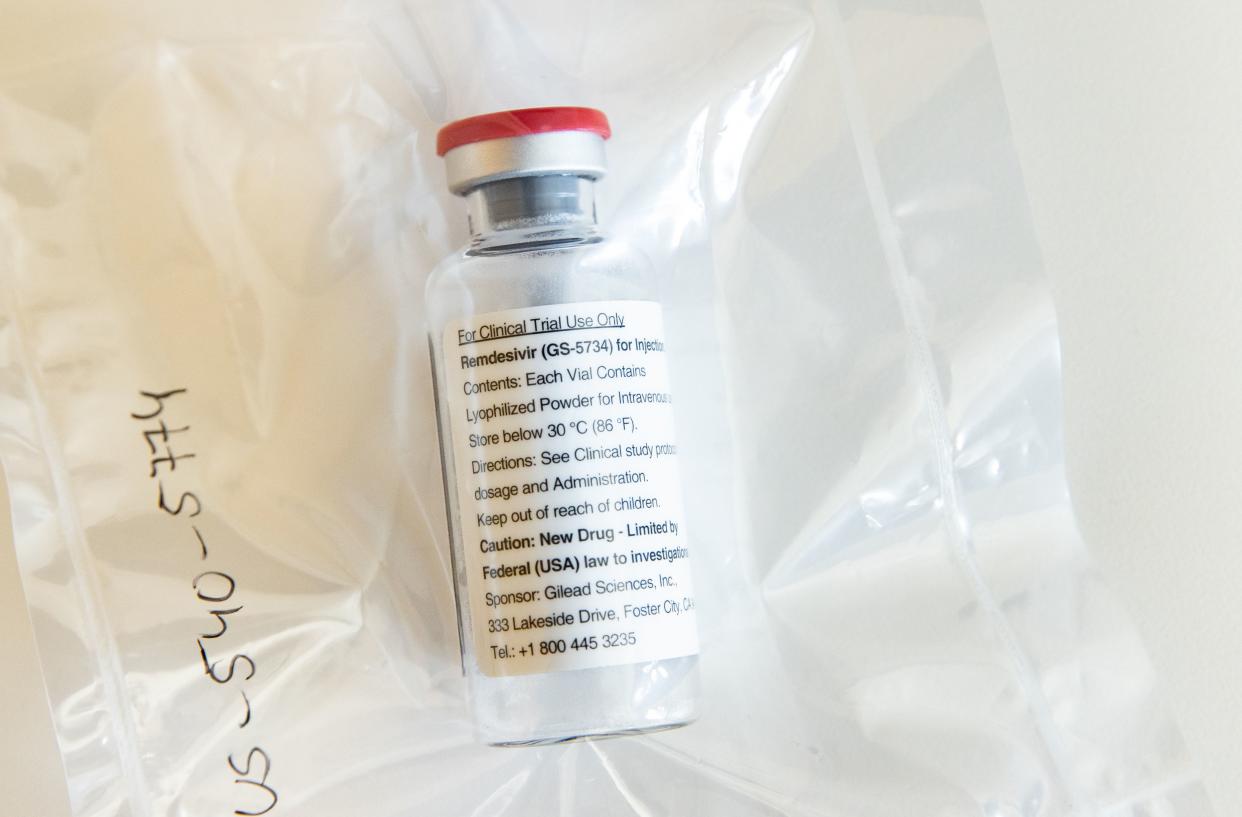Coronavirus patients recover 'much faster' with Ebola drug in encouraging results, doctors say

A drug used to treat Ebola has shown "very encouraging results" at cutting recovery times for coronavirus patients, according to a scientist leading the trials.
An international clinical trial, co-led by University College London (UCL) and the UK's Medical Research Council, found the antiviral drug Remdesivir speeds up recovery from coronavirus by almost a third.
Abdel Babiker, professor of epidemiology and medical statistics at UCL, told BBC Radio 4's Today programme: "These are very encouraging results from the first large-scale randomised trial to report on any treatment of COVID-19.”
He said the group of adults being treated in hospital for advanced coronavirus who received Remdesivir recovered "much faster" than the group that received a placebo.

Babiker said a similar trial of 237 adults in China that showed no benefits of the drug was “probably not large enough”.
That study concluded that remdesivir does not speed recovery from COVID-19 compared with placebo in hospitalised patients who are critically ill.
Babiker added that he expects the licensing of the drug in Europe to treat COVID-19 patients to be fast-tracked.
Latest coronavirus news, updates and advice
Live: Follow all the latest updates from the UK and around the world
Fact-checker: The number of COVID-19 cases in your local area
6 charts and maps that explain how COVID-19 is spreading
Preliminary results also suggested a survival benefit, with a lower mortality rate of 8% for the group receiving the drug, compared with 11.6% for the placebo group, the National Institute of Allergy and Infectious Diseases (NIAD) said.
More than 1,000 patients have been recruited across the world, including 46 from the UK, for the Adaptive COVID-19 Treatment Trial, which began at the start of April.
Scientists involved in the study defined recovery as a patient being well enough to come off oxygen, being discharged from hospital or even returning to normal activity levels.
During the trial, which involved more than 70 hospitals across the globe, patients were given the antiviral drug every day for 10 days while they remained in hospital.
Professor Mahesh Parmar, director of the Medical Research Council Clinical Trials Unit at UCL, who oversaw the EU portion of the trial, said scientists will continue to gather further data while the early results are reviewed by regulators.
Parmar said: “These results are very promising indeed. They show that this drug can clearly improve time to recovery.
“Before this drug can be made more widely available, a number of things need to happen: the data and results need to be reviewed by the regulators to assess whether the drug can be licensed and then they need assessment by the relevant health authorities in various countries.
“While this is happening, we will obtain more and longer term data from this trial, and other ones, on whether the drug also prevents deaths from COVID-19.”
Professor Philip Bath, the chair and head division of clinical neuroscience at the University of Nottingham, was more cautious about the claims.
He said: “In the absence of a control group I am not sure what two active groups tell us since we do not know whether the drug works.”
He added that it was “certainly not a time to start using this drug until we know more”.
Professor Stephen Evans, from the London School of Hygiene and Tropical Medicine, said: “It will be important to check the mortality rates in this trial.”
Remdesivir is one of a handful of experimental drugs undergoing clinical trials worldwide to treat coronavirus.
Coronavirus: what happened today
Click here to sign up to the latest news, advice and information with our daily Catch-up newsletter

 Yahoo News
Yahoo News 


